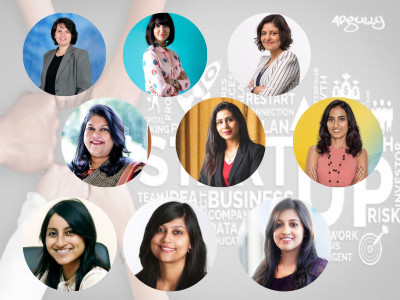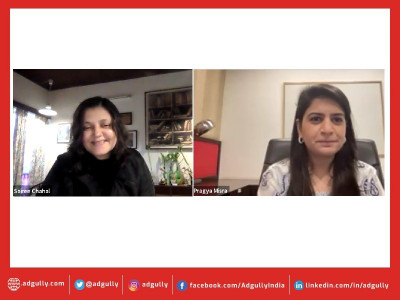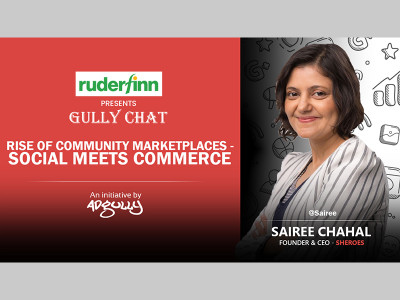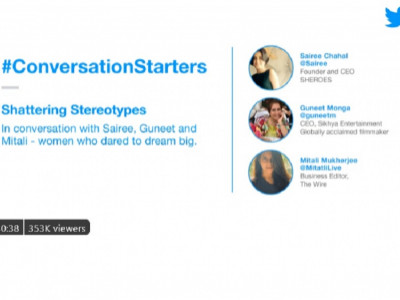Indian women ready to explore new horizons, but rooted to ground realities: Sheroes
Sheroes, a women’s community platform, sought to delve deeper into how women view and relate to aspects like ï¬nance, relationships, their attitudes around sex, and their everyday concerns, with its online survey on ‘Lives of Women’. The aspirations, attitudes and desires of Indian women are ever changing, especially in the digital era.
Sairee Chahal Founder, CEO, Sheroes, noted, “The results of the survey are reflective of a neo-emerging narrative around women’s growth journeys. Do our media narratives, communication, and offerings for women, mirror this shift? That is a question businesses, marketeers, journalists, and other stakeholders in the women’s narrative, must seriously introspect on.”
Aspirations that drive women
According to the survey, the top aspiration among the women at 31 per cent was the desire to be able to explore their talent and creativity to their fullest potential, followed by 26 per cent who aspire to be agents of change by making a difference in the world. 22 per cent of the women expressed the importance of building a successful career, while the desire for a supportive relationship or marriage was next on the list.
While the general perception is that women are not driven by the desire for money, 8 per cent indicated their aspiration to earn “a lot of money”.
What women cherish
49 per cent of the women valued their emotional quotient most, while 32 per cent valued their intellect and creativity. Beauty and sex appeal ï¬gured low on the scales, with just 5 per cent thinking it was their best asset.
An important revelation is how women view their own potential – there’s a deep sense of self-belief and knowledge about one’s worth, while some women felt it was important for them not to be judged by the failure of personal relationships. This segment also indicated a strong drive among women to be viewed as individuals, and have an identity beyond daughter, wife, mother, homemaker, and professional.
How women handle their money?
Saving and investments were top priority for 37 per cent of the women, while 29 per cent were keen to contribute towards critical family needs, including medical and educational needs. Several women indicated that they were keen to continue supporting their parents after marriage.
Interestingly, only 1 per cent felt that a shopping spree was a top priority, contrary to the perceptions in society. In fact, travel – solo and in groups – scored over retail therapy with a whopping 28 per cent choosing it as a top priority.
Other interests where women were keen to invest their money was in their own education/ skilling/ training, entrepreneurship and philanthropy. Some women were keen to build a nest egg, so they could become self-reliant. Hence, there is a deï¬nite trend of women visualising themselves as wealth creators.
What women stress about?
A recurring theme among 23 per cent of women is the difficulty that they face in juggling responsibilities of home and career due to lack of support and unrealistic expectations from spouse and in-laws. Dearth of money and the pressure to conform to society’s expectation are major stressors.
A whopping 40 per cent felt they lacked a go-to support system, while married women expressed a mixed bag of responses with regards to their life partners being emotionally available to them. Some women leaned on pets, children, parents and roommates for emotional support.
Lack of safety and personal agency, especially after marriage, are strong themes, with some women calling out acts of discrimination. On the bright side, this segment also indicated much hope and self-belief in women that their gender is not the problem as much as perceptions towards gender. Several women considered it “awesome” to be a woman.
Women and relationships
There is a shift in terms of prioritising career over marriage. Freedom and personal choices are considered important over marriage. Though there are women who consider marriage as important due to companionship, however, a signiï¬cant percentage considers it important only if it meets their conditions.
A whopping 84 per cent of women want to be with a partner who loved them and made a good companion, while 7 per cent said they were not seeking a partner/ husband at all, and 2 per cent talked about the importance of family background. Several women spoke about the value of an understanding spouse, and the need for respect and support in managing household responsibilities. Also, the need to keep up the “spark” post marriage.
Around 32 per cent of women believed premarital sex is not a good idea, but the underlying reason for this is where it gets interesting – women cited societal repercussions as a major deterrent as opposed to viewing it as an incorrect lifestyle choice. 11 per cent highly recommended sex before marriage as a way to test compatibility, while others saw it as a natural extension of one’s relationship.
Aspects like consent, personal choices, and how men view women who indulge in sex before marriage, were strong themes in this section. 42 per cent were unsure about their attitudes towards it, indicating a need for more value-based sex education.
















Share
Facebook
YouTube
Tweet
Twitter
LinkedIn